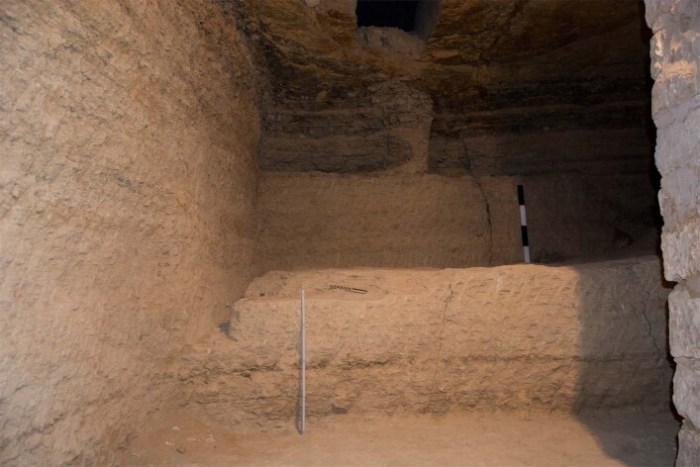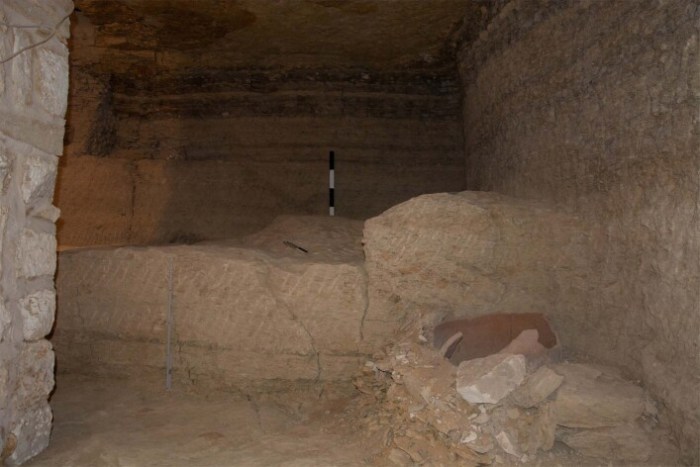Biomolecular analyses enable new insights into ancient Egyptian embalming, revolutionizing our understanding of their intricate practices and beliefs. Through advanced techniques such as DNA analysis, proteomics, and lipidomics, researchers have gained unprecedented access to the molecular secrets of mummification, shedding light on embalming techniques, health status, cultural significance, and cross-cultural influences.
The meticulous examination of embalmed remains has revealed the use of various resins, oils, and spices, providing insights into the materials and substances employed to preserve bodies. Biomolecular analyses have also illuminated the health conditions prevalent during ancient times, offering valuable information on the overall well-being of the population.
Biomolecular Analyses of Ancient Egyptian Embalming

Biomolecular analyses have revolutionized our understanding of ancient Egyptian embalming practices. By analyzing the molecular components of mummies, researchers have gained insights into the materials, techniques, and health status of ancient Egyptians.
Types of Biomolecular Analyses
- DNA analysis: Identifies genetic material to determine the origin, relationships, and health conditions of individuals.
- Proteomics: Examines proteins to reveal information about diet, disease, and the embalming process.
- Lipidomics: Analyzes lipids to understand the types of oils and resins used in embalming and their potential health implications.
Insights into Embalming Techniques
Biomolecular analyses have provided detailed insights into the embalming techniques used by ancient Egyptians. Researchers have identified:
- Materials:Resins (e.g., pine, cedar), oils (e.g., olive, castor), and spices (e.g., myrrh, frankincense)
- Techniques:Evisceration, removal of the brain, and application of preservatives to the body and organs
- Variations:Differences in techniques based on social status, period, and geographical location
Health and Disease in Ancient Egypt
Biomolecular analyses have shed light on the health and disease status of ancient Egyptians. Studies have revealed:
- Diseases:Prevalence of tuberculosis, malaria, and parasitic infections
- Health conditions:Evidence of malnutrition, dental disease, and cardiovascular problems
- Implications:Insights into the overall health and well-being of the ancient Egyptian population
Cultural and Religious Significance of Embalming
Embalming played a central role in ancient Egyptian culture and religion. Biomolecular analyses have helped to uncover:
- Beliefs:The preservation of the body was essential for the deceased’s journey to the afterlife
- Practices:Mummification rituals and the use of amulets and protective spells
- Symbolism:Embalming represented the transformation of the body into a divine form
Comparison with Other Ancient Cultures, Biomolecular analyses enable new insights into ancient egyptian embalming
By comparing embalming practices in ancient Egypt with those of other ancient cultures, researchers have identified:
- Similarities:Use of resins, oils, and spices; belief in the preservation of the body
- Differences:Variations in techniques, materials, and religious beliefs
- Influences:Cross-cultural exchanges and influences on embalming practices
Popular Questions: Biomolecular Analyses Enable New Insights Into Ancient Egyptian Embalming
How did biomolecular analyses contribute to our understanding of ancient Egyptian embalming?
Biomolecular analyses, such as DNA analysis, proteomics, and lipidomics, have provided valuable insights into the embalming techniques, materials used, health status of individuals, and cultural beliefs surrounding mummification in ancient Egypt.
What were the key embalming techniques employed by ancient Egyptians?
Biomolecular analyses have revealed that ancient Egyptians used a combination of techniques, including evisceration, dehydration, and the application of resins, oils, and spices, to preserve bodies.
How have biomolecular analyses shed light on the health status of ancient Egyptians?
Biomolecular analyses of embalmed remains have provided valuable information about the health conditions prevalent during ancient times, including evidence of infectious diseases, dietary habits, and genetic disorders.

